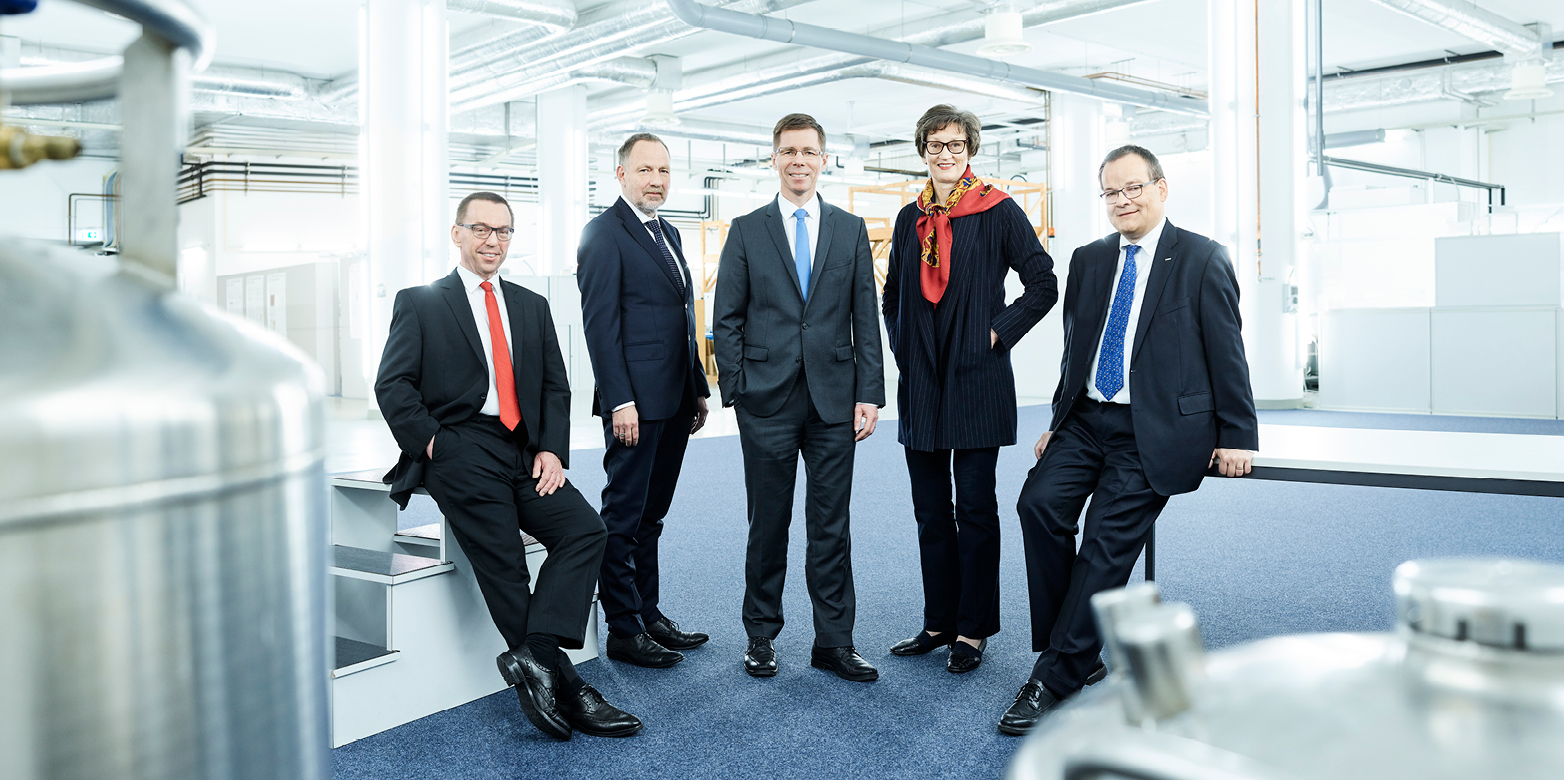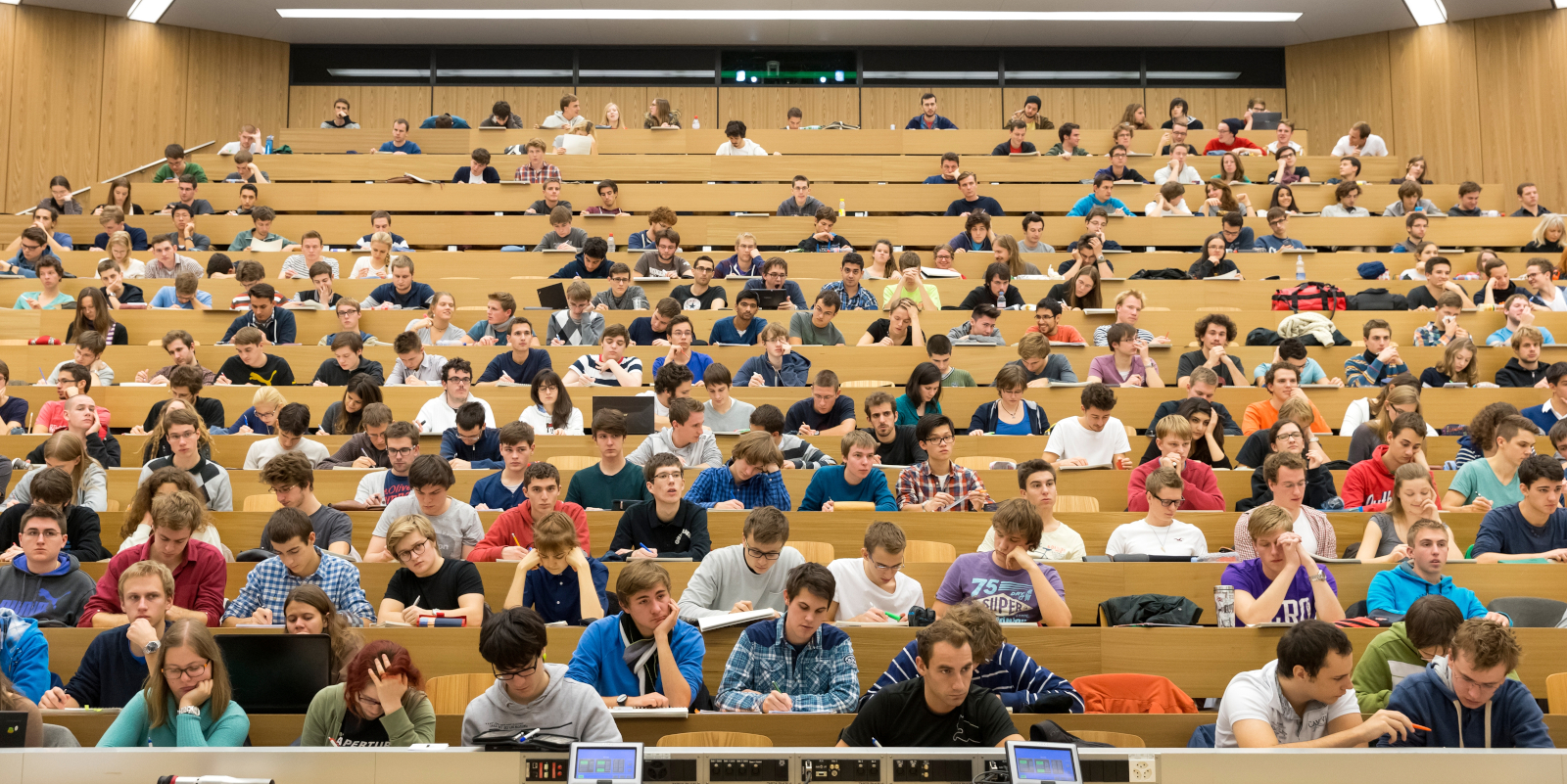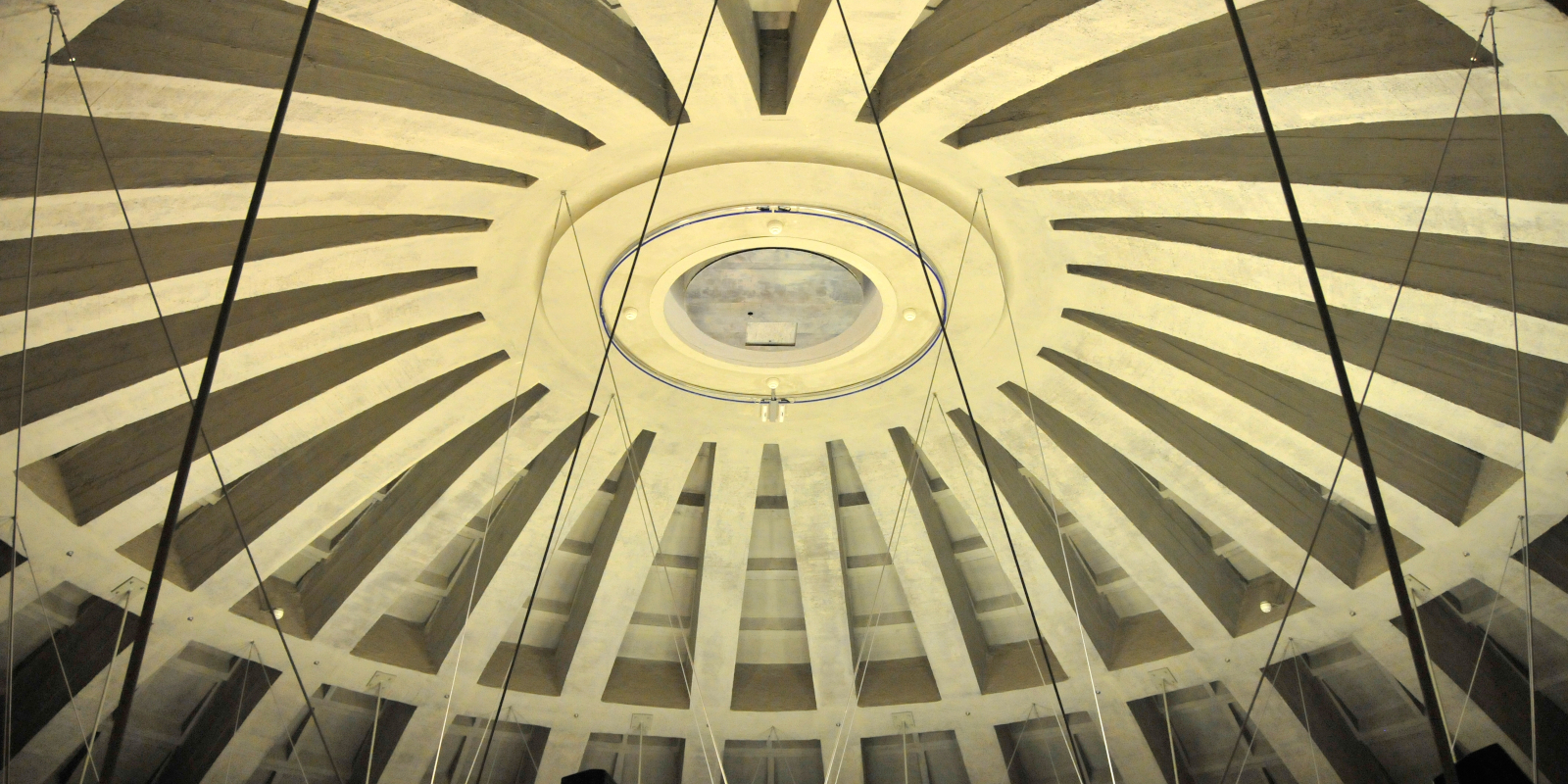The Executive Board reports 2019 / 5
Future admission arrangements for the ETH master’s programme, the composition of the ETH Zurich Research Commission for the next few years, and new uses for the space under the dome of the ETH main building: these were some of the most important items on the agenda for recent meetings of the Executive Board.

At its last two meetings before the summer break, the Executive Board already approved the expansion of the ombudspersons and the specialist support units, along with the further development of the ETH doctoral study programmes (see the last edition of Executive Board reports 2019 / 4). Now one of the first decisions taken by the Executive Board at its first two meetings after the summer recess was to confirm the composition of the ETH Zurich Research Commission. To this end, the Executive Board reappointed Uwe Sauer as President for a second term of office. New members appointed to the Commission included Katrien de Bock (D-HEST, Professor for Exercise and Health), Timm Schröder (D-BSSE, Cell Systems Dynamics), Consuelo de Moraes (D-USYS, Biocommunication and Ecology) and Siddartha Mishra (D-MATH, Applied Mathematics). Professors Renato Paro (D-BSSE) and Christian Wolfrum (D-HEST) stepped down from the Commission on 30 June 2019, while Alain-Sol Sznitman (D-MATH) and Alex Widmer (D-USYS) plan to leave on 31 December 2019.
New goals for admission to the master’s programme
The admission criteria for the master’s programme are being redefined. The Rector has launched a new project in support of this: “Redefine Master’s Admission”. In one of the subprojects overseen by Lorenz Hurni, Vice-Rector for Study Programmes, ETH’s goals when admitting candidates to the master’s programme were reformulated. Those in charge of the study programmes gave their feedback on the proposals last spring. The Executive Board has now approved the final version. Admission to the master’s programme will in future be oriented towards five overarching goals:
- Quality and excellence: ETH should aim to attract outstanding students with potential as future leaders in science, business and society. This will heighten the quality of education.
- Diversity: attracting the best students from Switzerland and abroad for the master’s programme creates an international and diverse community. In the case of international students, attention should be paid both to quality and their willingness to integrate into university life.
- Education mission: ETH fulfils its education mission and utilises the capacities of its study programmes in order to educate as many graduates as possible for the job market and the fields of science and technology. The core group here is graduates from ETH’s own bachelor’s courses, most of whom move on to the master’s programme at ETH.
- Transparency of the Swiss education system: ETH consistently establishes the criteria for transfer opportunities between bachelor’s and master’s programmes and between the different types of university.
- Admission restrictions: ETH will in future continue to refrain from imposing admission limits (except in medicine) unless there are capacity constraints regarding student supervision or infrastructure. The focus will be squarely on all other instruments for controlling student numbers.
The newly formulated goals for admission to the master’s programme serve as a guideline for the ongoing development of the “Redefine Master’s Admission” project. ETH has been offering master’s courses since 2005, and they have now multiplied to 49. In the last Autumn Semester, 6,590 students completed a master’s degree and the trend has been clearly increasing in recent years. Almost 60 percent of all master’s students completed their bachelor’s degree at ETH. There is also a growing number of master’s students from other universities, both in Switzerland and abroad. Over the past years the number of applicants has risen sharply in certain subjects such as computer science, thus increasing the need for fair and transparent regulations.

New building for students and innovators
The new HCI building on Hönggerberg campus will provide a new, dynamic centre for innovation and knowledge transfer. In future the new building will also house the VSETH, other student organisations such as the SOSETH, the Student Project House and various ETH innovation projects such as ieLab, the Entrepreneurs Club and ETH Juniors. By bringing them together, urgently needed space will also be freed up for research and teaching. The Vice President for Human Resources and Infrastructure will submit the project to the ETH Board for inclusion in the Building Programme 2023. As things stand, the building should be ready to move into between the end of 2025 and the beginning of 2026.
New reception hall under the ETH dome
The growing number of partnerships, external contacts and outreach programmes create the need for new, contemporary premises where ETH can receive guests and give them an introduction to the university. Extensive investigation has shown that the area under the dome of the main building, currently in use as the Visualisation Dome (VisDome) is the most suitable space for this. Key strengths include its central and prominent position in the main building, its proximity to the faculty restaurant and its unique architectural features. Numerous interested stakeholders – the Executive Board, central administrative units, university groups and commissions, as well as ETH alumnae – were consulted to sound out their ideas and how they would like the space to be used. Within this context, the idea also gradually emerged of developing the dome into a Living Lab showcasing ETH and its collaborative ventures using digital media. The need for such a space shall be established by the summer of 2020, and a concept prepared for public access and signage from the entrance in Rämistrasse. Disabled access must also be assured. With the new Reception Hall, Villa Hatt, Semper Aula and AudiMax, ETH Zurich will have a good selection of facilities for representation purposes.

Strong support for master’s students
The Master Scholarship Programme (MSP) is being expanded and will be renamed. Scholarships for master’s studies will in future be offered to 60 (instead of 50) students every year. They will now receive an annual stipend of 15,000 (rather than 12,000) Swiss francs from the Rector. Including the additional finance from the academic departments, students may be eligible for a total of 21,000 Swiss francs per year. The name of the scholarship will now include the department name as well, such as “ETH PHYS Scholarship”. Since 2015, the MSP scheme and its sister “Excellence Scholarship Programme (ESOP)” have paid out around 2.5 million Swiss francs in total to 119 students from 31 countries. Fourteen ETH departments offer these stipends and in some cases combine them with activity as teaching assistants.
New institute in the Department of Architecture
A new institute was created in the Department of Architecture at the start of August: the Institute for Landscape and Urban Studies (LUS). LUS combines and replaces three existing institutes: Urban Design (ISB), Landscape Architecture (ILA) and the Contemporary City Institute (CCI). The new professors working at LUS include Christophe Girot, Hubert Klumpner, Freek Persyn, Milica Topalovic and Günther Vogt.
Driving quantum technology forward
The Executive Board is providing two million Swiss francs to support the founding of a collaborative laboratory for cutting-edge quantum technology based at the Paul Scherrer Institute.
High demand for Self-Access Centre
The Executive Board is delighted to learn that the Self-Access Centre on Hönggerberg Campus is attracting plenty of use, helping to fill a gap for students, and has agreed to make it a permanent facility.
Regular updates from the Executive Board
The ETH Zurich Executive Board has scheduled meetings every two weeks. Brief summaries of the major decisions passed at each session can be found in this section. This update contains the key decisions from the meetings held before and after the summer break.
